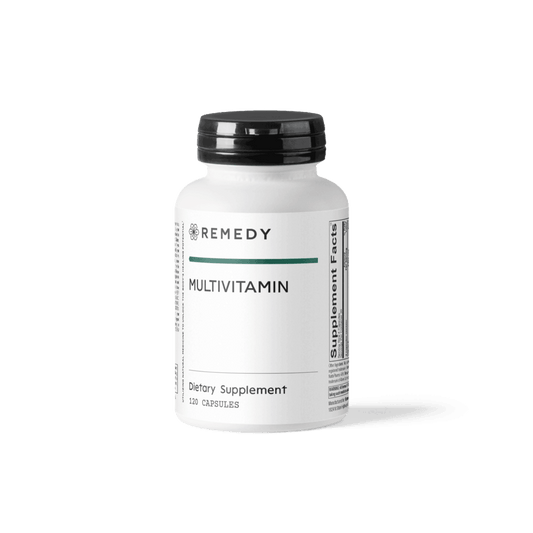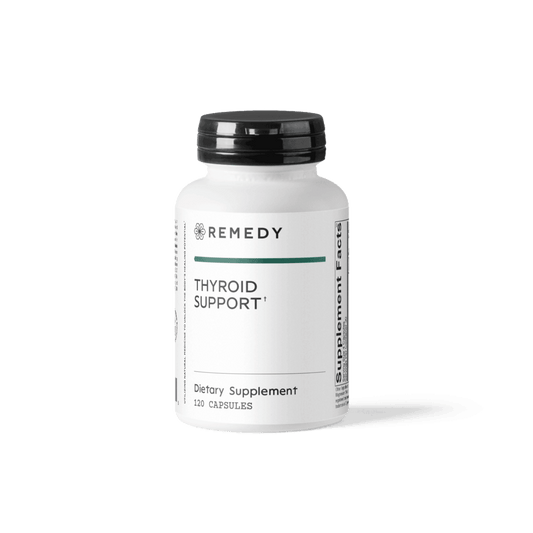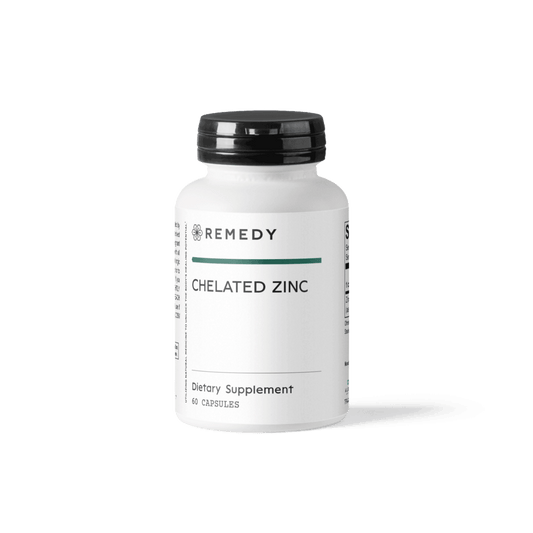Many prescription medications on the market are designed to mimic compounds naturally found in plants. The difference is a plant has hundreds and thousands of components that work directly together to exhibit their healing properties, while prescription medications are synthetic versions of one extract. God’s design of foods and plants is hard to reproduce and often the full extent of healing properties is lost while side effects are gained.
Prescription medicine for chronic conditions can sometimes fail to address all side effects and symptoms of that condition. Hypothyroidism and specifically the autoimmune-related disease Hashimoto’s Thyroiditis is one chronic condition where herbal medicine can help relieve your symptoms.
After all, the tiny gland that is responsible for thyroid hormone production that regulates energy and metabolism is actually a big deal.
This small gland at the base of your neck produces hormones that are secreted into the bloodstream and carried around the body for various functions. Many factors can influence the levels of thyroid hormones in your body including autoimmune disease, nutrition, and genetics.
A lot of people wait until they have an underactive thyroid or autoimmune disease to start making lifestyle changes, but you don’t have to wait. Certain herbs are great for your thyroid and will help you continue to keep feeling great now and in the future.
Why Does Functional Medicine Use Herbs?
A conventional doctor will put you on prescription medication for the rest of your life after you are diagnosed with hypothyroidism. For example, in the case of Hashimoto’s most doctors will treat you by focusing on correcting thyroid-stimulating hormone (TSH) levels.
On the other hand, a functional medicine doctor will seek to uncover the root cause behind your thyroid disfunction. In some cases, it is possible to uncover the underlying triggers of autoimmunity and reverse your autoimmune disease and a functional medicine practitioner can help you do this.
Medicinal herbs are one tool functional medicine practitioners use to provide targeted and broad-spectrum relief to patients. Most medicinal herbs and plants show anti-inflammatory, antioxidant, and immune-moderating properties. Not only that, but more research is substantiating the effects that doctors and patients have seen for years.
In fact, many prescription medications on the market are designed to mimic compounds naturally found in plants. The difference is a plant has hundreds and thousands of components that work directly together to exhibit their healing properties, while prescription medications are synthetic versions of one extract. God’s design of foods and plants is hard to reproduce and often the full extent of healing properties is lost while side effects are gained.
What are Herbs?
To put it simply, herbs are plants or plant parts (leaves, roots, seeds, flowers, berries, bark) that have aromatic or savory properties and are often used in cooking. You can think of your common kitchen herbs like parsley, basil, rosemary, etc. There also exists a category of herbs that are known for their medicinal properties.
Herbs used for medicinal purposes are called herbal products, phytomedicines, or botanical products. If intended for internal use, the product is usually referred to as an herbal supplement. Herbal supplements can be purchased in many forms, both raw and dried. They can be powdered, in a pill or capsule, dried, chopped, in essential oils, in a cream, or in a form to be brewed as a tea.
Herbal products are not regulated by the FDA, so you need to ensure that you purchase quality herbal supplements from a reputable vendor.
What is Hypothyroidism?
When your thyroid isn’t working properly, it can feel like your entire body is breaking down. That’s because the thyroid gland is responsible for regulating metabolic processes and influences digestion, the heart, mood, brain development, and muscle control. Hypothyroidism occurs when your thyroid gland produces too little of the thyroid hormones. It is an underactive thyroid.
Meanwhile, if you have an underactive thyroid you may also have an autoimmune disease called Hashimoto’s Thyroiditis. This occurs when your body makes antibodies that attack the cells in your thyroid. The thyroid then can't make enough of the thyroid hormone.
Most conventional doctors will only check for your thyroid-stimulating hormone (TSH) levels and your inactive thyroid hormone (T4) levels. In order to get a full picture of your thyroid health, a functional medicine practitioner will recommend a full thyroid panel. They will check your TSH, free T4, free T3, and reverse T3 levels, as well as certain antibodies to look for thyroid autoimmunity.
You can ask your practitioner to order a comprehensive thyroid panel with those listed above, work with a functional medicine practitioner, or order your own comprehensive thyroid panel.
Signs Your Thyroid Needs Support
If you are experiencing extreme fatigue, changes in mood, and unexpected weight gain you should take these symptoms seriously. You could blame them on the daily stressors of life adding up, but more likely there is a health condition causing your symptoms. Here are a few of the symptoms commonly associated with hypothyroidism:
- Excessive daytime sleepiness
- Extreme fatigue
- Unexplained weight gain or weight loss
- Joint or muscle pain
- Very dry skin, and/or brittle hair
- Changes in mood
- Worsening depression
Herbs To Help Heal Your Hypothyroidism
As a complementary treatment to help heal your hypothyroidism, herbs work best by targeting your individual root cause or triggers for autoimmunity. For example, many individuals with Hashimoto’s also happen to have digestive problems. There are herbs available to help with digestive distress, but the root cause of that distress might be stress. Your symptoms would be better served by using herbs that target your body’s stressed-out state.
That’s one reason it’s so important to work with a functional medicine practitioner when seeking alternative treatments for hypothyroidism. They will be able to look at your root cause triggers and find the right solution for you.
That being said, here are three herbs that specifically target hypothyroidism.
Ashwagandha
Ashwagandha is an adaptogenic herb and one of the most popular herbs for thyroid health. It helps the body deal with stress and may improve thyroid function, especially in those with subclinical hypothyroidism.
Black Cumin Seed
Black cumin may have significant benefits on patients with Hashimoto’s thyroiditis. It also has antioxidant and anti-inflammatory properties.
For example, one study on black cumin raised T3 concentrations without changing the concentration of serum TSH. The authors of the study suggested this was due to its ability to repair the thyroid gland and resynthesize thyroid hormone due to an ability to raise antioxidant defense systems.
Bacopa
Bacopa has neuroprotective properties and is mostly known for its beneficial effect on mood and mental clarity. However, an animal studyrecently demonstrated that bacopa increased thyroid hormone production as well.
High-dose bacopa extracts increased both T3 and T4 similar to that of the medication levothyroxine, stimulating the thyroid gland and alleviating symptoms.
What Herbs Should You Avoid with Hypothyroidism?
When seeking to support your hormonal health with phytomedicines you should be aware of what herbs to avoid when you have hypothyroidism. Bugleweed and Lemon Balm are two herbs that are used in the treatment of hyperthyroidism, the reverse condition of hypothyroidism. As such, their goal is to reduce thyroid production rather than stimulate it.
Acids in bugleweed decrease levels of several hormones in the body, particularly thyroid-stimulating hormones and the thyroid hormone thyroxine. Meanwhile, test-tube studies have found that lemon balm blocks the attachment of antibodies to the thyroid cells that cause Grave's disease, or hyperthyroidism. The brain's signal to the thyroid is also blocked from further stimulating the excessively active thyroid gland in this disease.
Other Considerations with Herbal Medicine
Caution should be exercised when working with herbal medicines. Just like regular medicine, herbal medicines come with side effects, risks, and benefits. Never self-diagnose or self-prescribe, no matter what you read online! Working closely with a functional medicine practitioner will ensure your health is taken care of and you’re given the right medicine for your condition.
If you’re interested in learning more about how to optimize your health schedule a 15-minute consultation! As a pharmacist, I promise I’ll lead you down the right path to better health.








